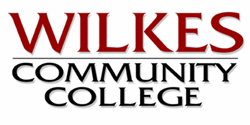Compensatory Education and Basic Skills Program

Compensatory Education and Basic Skills Program are offered at the ADVP site by Wilkes Community College. This program is operated by a teacher and part time aide which are provided by Wilkes Community College. This program assesses educational and developmental needs of its students and in conjunction with the ADVP program and student self assessment to determine training goals and objectives. Training is completed in a small class setting to allow for one-on-one training to develop identified student needs.
Compensatory Education (CED)
(provided through Wilkes Community College)
Compensatory Education is a program to compensate mentally disabled adults age 17 and over who have received an insufficient or inadequate education. The program requires that a specialized diagnosis be determined and certified by a qualified professional, such as a physician, psychiatrist, or psychologist. The goals of the Compensatory Education program are to help these individuals acquire the basic skills and abilities needed to become more independent and self directed and to manage their community, social, employment, and personal responsibilities. Topics studied in Compensatory Education include: reading, life skills, money management, community living, health habits, problem solving, and pre-vocational skills.
Compensatory Education (CED)
(provided through Wilkes Community College)
Compensatory Education is a program to compensate mentally disabled adults age 17 and over who have received an insufficient or inadequate education. The program requires that a specialized diagnosis be determined and certified by a qualified professional, such as a physician, psychiatrist, or psychologist. The goals of the Compensatory Education program are to help these individuals acquire the basic skills and abilities needed to become more independent and self directed and to manage their community, social, employment, and personal responsibilities. Topics studied in Compensatory Education include: reading, life skills, money management, community living, health habits, problem solving, and pre-vocational skills.
